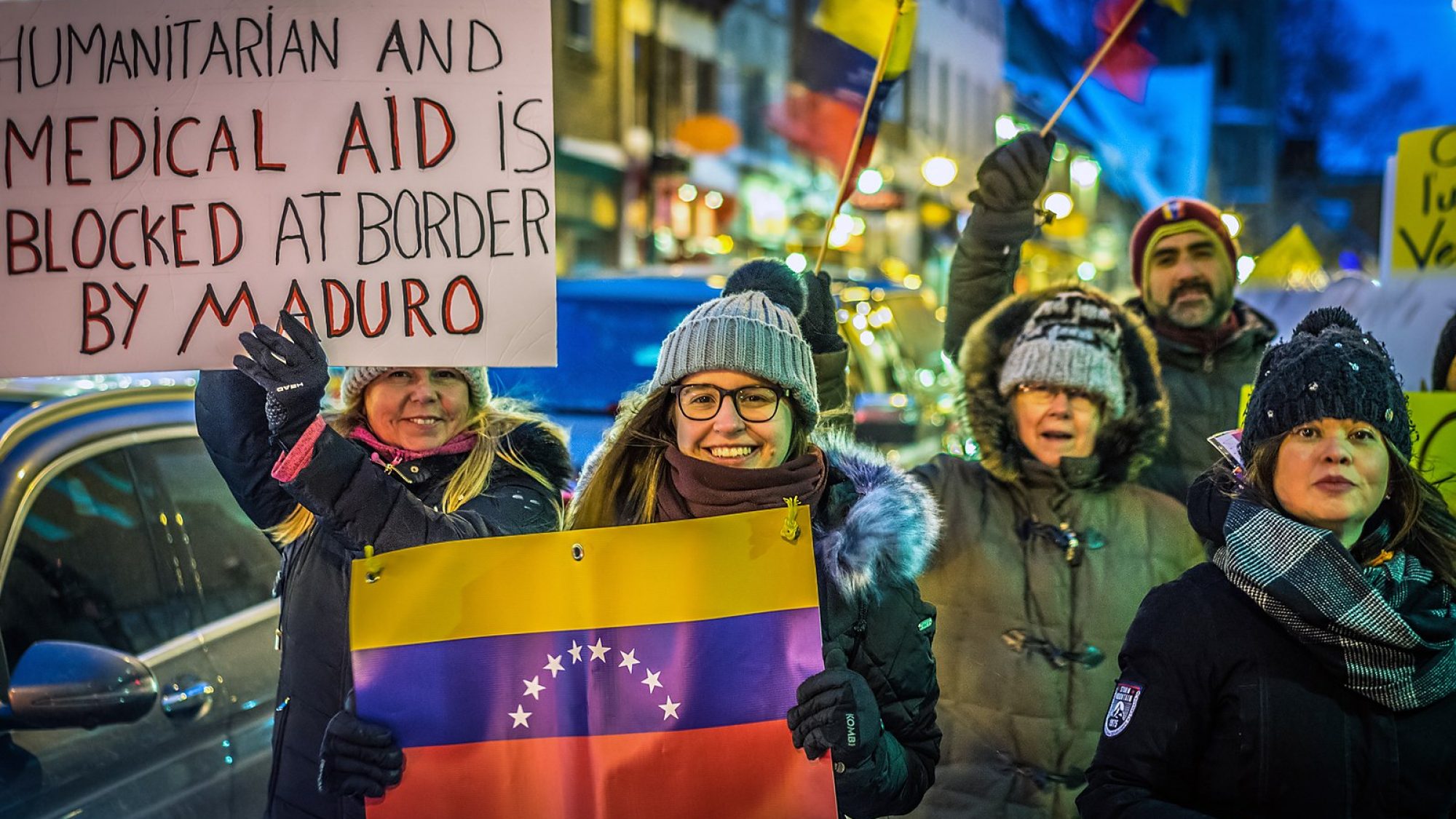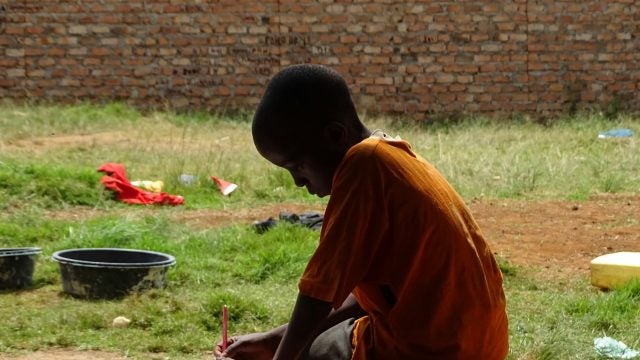
Title: To End Venezuela’s Humanitarian Crisis, Start with Family Planning
One casualty of Venezuela’s ongoing humanitarian crisis has been women’s access to contraception. Any meaningful effort to work through the crisis smartly and seriously must start with family planning investments, which will allow Venezuelans to lift themselves out of poverty, contribute to the entire economy’s growth, and protect human rights.
Over the last several years, Venezuela has dealt with a devastating humanitarian crisis that has forced millions into poverty. This situation, initiated under Hugo Chávez’s presidency, intensified under Nicolás Maduro’s government and worsened as a result of the drop in oil prices. In all these years, it has only led to strong hyperinflation, increased poverty, the reappearance of eradicated diseases, crime, and increased mortality, resulting in massive emigration from the country. As the country’s crisis enters its eighth year, one deeply saddening consequence is that millions of women are no longer able to find or afford contraceptives. The social and economic situation, combined with the impact of COVID-19, has worsened the lack of access to family planning methods and increased unwanted pregnancies and unsafe abortions. Whereas this may seem like just one tiny piece of a much bigger problem, any serious effort to work through Venezuela’s humanitarian crisis must incorporate family planning as a critical step.
Family Planning in Venezuela Today
In Venezuela, as the economic and social crisis deepens, drama grows in private homes, as millions of women can no longer access contraceptives. While parents can hardly feed the children they already have, a lack of family planning methods has led to an increase in unwanted pregnancies, further burdening families.
The fact is that shortages in family planning methods and the high price of those in the market make it difficult for Venezuelans to have adequate control over their reproductive decisions. Traditional contraceptives, such as condoms or pills, have practically disappeared from the shops or have become inaccessible due to the increase in their prices due to scarcity.
This lack of contraceptives limits women’s decision-making autonomy, violates their human rights, and puts many women at risk. In most cases, unintended pregnancies push women to unsafe clandestine abortions. Many others carry their pregnancies to term, but they cannot afford to feed their new children due to the humanitarian collapse.
When Venezuela’s economy started to tumble in 2014, due to plummeting crude oil prices and poor financial management, the government’s purchasing power dropped. By 2015, contraceptives, which were once free at government hospitals and broadly affordable at private pharmacies, began to disappear. By 2018, oral contraceptives, implants, and patches were nearly impossible to find in several major cities.
In 2019, Venezuela’s poverty rate surged to levels unmatched in any other Latin American country. The continued decline of the country’s crude exports contributed to the rise in the poverty rate. The 2019-2020 National Survey of Living Conditions (ENCOVI) conducted by researchers at Andres Bello Catholic University found that 64.8 percent of Venezuelan households experienced “multidimensional poverty” in 2019, considering their income as well as access to education and public services, among other things. In May 2020, three UN experts expressed concern about the spiraling economic crisis and the effect this has had on people’s ability to subsist from one day to the next one.
Amid the COVID-19 pandemic, the United Nations reported that “hyperinflation in Venezuela means that roughly one-third of the population—more than nine million people—do not get enough to eat and need assistance.” At the same time, “fifty-nine percent of households have insufficient income to buy food, and sixty-five percent cannot purchase other essential items such as hygiene products, clothes, and shoes.”
Birth control pills and other family planning devices cost up to twenty-five times the minimum wage. Venezuela’s minimum wage is about $1.50 per month, while a pack of condoms costs $4.40. The problem is not limited to condoms; birth control pills cost close to $11 each month, and an intrauterine device may cost up to $40, in addition to the doctor’s fees.
Why is Family Planning Essential?
Four key issues explain the importance of family planning. Firstly, access to contraceptives and family planning methods decreases maternal and infant mortality during childbirth; it lowers the rate of unwanted pregnancies and reduces unsafe abortions. Secondly, family planning also helps existing children. When women are able to plan their children with an average interval of two to three years, the chances of survival of the baby doubles. Thirdly, family planning also results in healthier babies since the mother will be able to dedicate more time to breastfeeding, which favors physical and emotional health. Lastly, it contributes to women’s empowerment as it prevents teen pregnancy, making schooling and future opportunities possible. When adolescent girls become pregnant, they generally drop out of school, which reduces their opportunities and may negatively impact their futures prospects. As such, family planning contributes to economic independence and, ultimately, to women and girls’ empowerment.
Within the concept of reproductive health, family planning is a human right that implies women’s ability to enjoy a satisfactory, safe, free, and informed sexual life. Thus, states must provide women with information and means to access family planning methods and therefore be able to enjoy sexual and reproductive rights. Access to family planning methods recognizes women’s decisional autonomy to choose the number of children and the interval with which they wish to have them.
Women’s ability to decide if and when they want to get pregnant has a direct impact on their health and well-being, so access to contraceptive methods is essential to achieve their own well-being and autonomy and the health and development of their home and their community. In fact, according to the United Nations, family planning, in addition to being a human rights issue, is also considered a fundamental requirement for the empowerment of women, the reduction of poverty, and the achievement of sustainable development.
Family Planning as a Necessary Step to End Venezuela’s Humanitarian Crisis
For many years prior to the start of the humanitarian crisis, Venezuela set an example on women’s rights, with the adoption of multiple measures, such as the creation of the National Program on Sexual and Reproductive Rights in 2003, and the adoption of the 2007 Organic Law for the Right of Women to a Life Free of Violence, a forward-looking law at the time. The most important measure, however, was the incorporation of family planning into their national Constitution, giving people the right “to freely and voluntarily decide the number and spacing of their children.” The serious humanitarian situation has made it impossible to guarantee the exercise of this right due to the lack of contraceptive methods.
Deprived of access to contraceptive methods, Venezuelan women with fewer resources, particularly those in vulnerable situations, are left exposed to unwanted pregnancies. The consequences, both for health and the economy, are devastating and affect their children as well. Their inability to decide whether, when, or how often they want to become pregnant can limit their access to education, delay their entry into the paid workforce, and reduce their income. As a result, they will indeed be trapped in poverty and marginalization.
Moreover, when people have access to contraceptives, families tend to be fewer in number. Venezuelan women would have more freedom to work outside the home, earn a salary, and contribute to the economy. Venezuelan parents could devote more resources to their children’s health and education, preparing them for a more productive future.
Despite Venezuela’s inability to secure family planning methods for their population, and their usual reluctance to accept aid—as part of their constant denial of the existence of a humanitarian crisis, international assistance can bring relief to the ongoing sexual and reproductive health crisis.
In this context, it is imperative that the international community assists and urges the Venezuelan government to accept international aid from governments, allies, donors, and international or non-governmental organizations, in the form of provision of family planning methods.
Better access to sexual health and family planning will allow Venezuelans to lift themselves out of poverty, contribute to the entire economy’s growth, and protect their human rights. Consequently, any effort to smartly and seriously work through Venezuela’s humanitarian crisis must start with family planning investments.
. . .
Andrés Constantin is a global health lawyer and advocate from Argentina, currently working on legal and policy issues relating to health at the O’Neill Institute for National and Global Health Law at Georgetown University. Andrés is also an Adjunct Professor of Law at Georgetown University. He has expertise in various areas ranging from sexual and reproductive health rights to the regulation of non-communicable diseases’ risk factors. In addition to his work at the O’Neill Institute, Andrés is a 2021 New Voices Fellow at the Aspen Institute and is pursuing his Doctor of Juridical Science (S.J.D.) degree at Georgetown Law, exploring the role of conscience-based claims in the access to health services.
Image Credit: Wilfredor, Creative Commons License, Wikimedia
Recommended Articles

Amid stalled U.S. federal climate engagement and intensifying transatlantic climate risks, subnational diplomacy has emerged as a resilient avenue for cooperation. This article proposes a Transatlantic Subnational Resilience Framework (TSRF)…

The 1997 hijab ban in Türkiye left lasting effects on Muslim women’s psychological, social, and religious identities, shaping their experiences across academia, bureaucracy, and politics. Evidence from interviews…

This article advances the idea that teaching children their mother tongues and learning adjacent national languages offers better prospects for consolidating nation-building and contributing to cultural preservation. Kenya’s case illustrates…